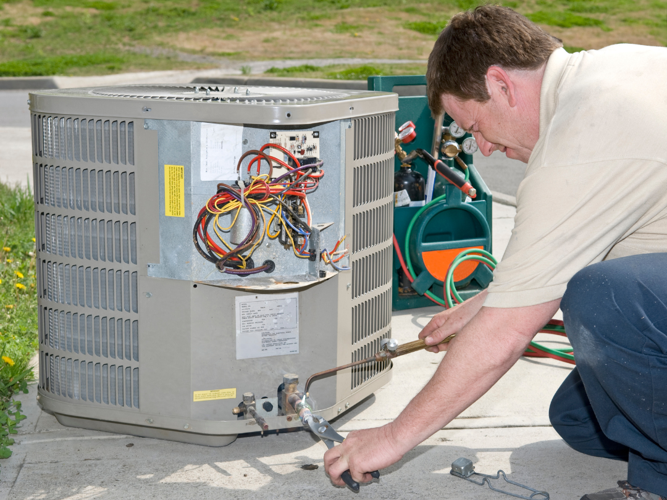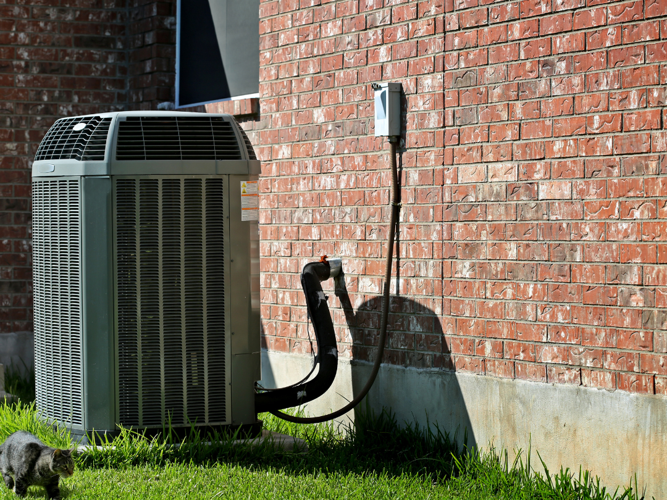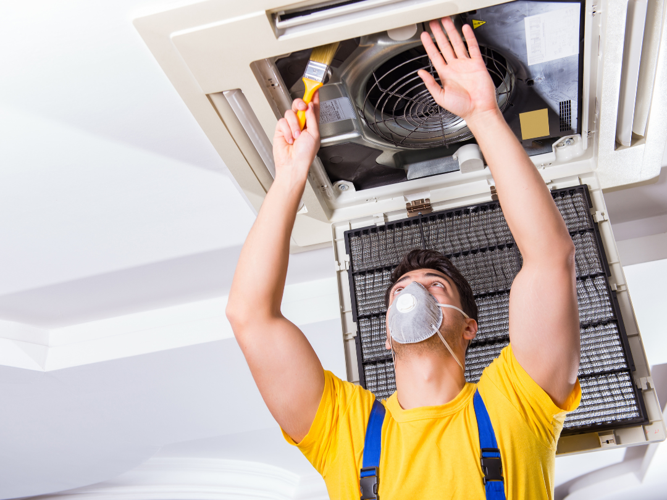
Choosing between one or two air conditioning (AC) units for your home can significantly affect your comfort, energy efficiency, and budget. Whether you're building a new home or upgrading your HVAC system, understanding the pros and cons of a single-unit versus a dual-unit setup will help you make an informed decision. This detailed guide explores each approach through a practical lens to help homeowners weigh the right option for their property.
Understanding Single vs. Dual AC Units
A single AC unit is a central system that distributes conditioned air throughout the entire house using ductwork. This setup is common in small to medium-sized homes and works best when the house has relatively uniform temperature needs.
On the other hand, dual AC units involve two separate systems—typically one for each level of a multi-storey home. Each unit has its own thermostat, air handler, and condenser. This arrangement allows for independent climate control on different floors.
In choosing between the two, several factors must be evaluated: square footage, home layout, energy consumption, installation and maintenance costs, and personal comfort preferences. A professional AC installation service can assess your space and recommend the most cost-effective and efficient solution.

Size and Layout of Your Home
The size and layout of your home play a pivotal role in determining whether one or two AC units will perform optimally.
Single-Storey Homes (Under 2,000 sq. ft.)
Most single-level homes of moderate size can be adequately cooled with a single, properly sized central AC unit. The air distribution is generally straightforward, especially in open-concept layouts.Two-Storey or Large Homes (Over 2,000–2,500 sq. ft.)
Homes with multiple floors often suffer from inconsistent temperatures. Heat rises, so upper floors tend to be warmer. A single system may struggle to push cool air upward effectively, leading to overcooling downstairs and undercooling upstairs. In these cases, two AC units or zoning systems provide better control and comfort.Home Additions or Guest Suites
If you've added square footage to your home, like a sunroom, basement apartment, or in-law suite a second unit or a ductless mini-split might be the right solution to avoid overburdening your primary system.
Energy Efficiency and Operating Costs
Energy efficiency is a major concern for most homeowners. The way your AC system runs can impact monthly energy bills and long-term operational costs.
Single AC Unit Pros & Cons
✅ Fewer components mean lower initial investment and maintenance.
❌ Can lead to energy waste if one area needs more cooling than others (e.g., constantly running to cool an upper floor while the lower stays too cold).
Dual AC Units Pros & Cons
✅ Allows independent temperature control for different zones, often leading to reduced energy use when only one area is in use.
✅ More efficient performance, especially during peak summer months.
❌ Higher upfront cost for purchasing and installing a second system.
❌ Dual maintenance schedules.
Homeowners often find that the increased energy efficiency of two systems can partially offset the higher initial costs over time. Energy Star-rated units, programmable thermostats, and smart zoning systems further boost savings.

Comfort and Climate Control
Comfort is more than just temperature; it’s about consistent performance, airflow, humidity control, and personalized settings.
Temperature Balance
A common issue with single-unit systems in larger or vertical homes is temperature imbalance. The main floor may feel cool, while upper bedrooms remain warm. A second unit allows for balanced temperatures and eliminates hot or cold spots.Zoning Flexibility
Dual-unit setups offer zone control. You can set different temperatures for sleeping areas, living rooms, or kitchens. For example, you might want the bedrooms cooler at night but don’t need the same settings in the main living areas.Noise Reduction
Using two smaller systems instead of one large unit can reduce noise levels since the systems don’t have to work as hard. This is especially beneficial in homes with bedrooms near air handlers or return vents.
Installation and Long-Term Considerations
The final decision often comes down to budget, structural limitations, and long-term value.
Installation Complexity
Installing two AC units requires space for two outdoor condensers and two indoor air handlers. Not all homes have sufficient room, especially in urban settings with limited exterior space. Existing ductwork may need to be redesigned or split.Cost Breakdown
Single Unit: Generally $4,000–$7,000 depending on SEER rating, size, and location.
Dual Units: Can range from $8,000–$15,000, including materials and labour.
However, rebates and tax credits for energy-efficient installations can help reduce the financial burden.Maintenance and Lifespan
With two units, maintenance costs are doubled, but so is redundancy. If one unit fails, the other may still keep part of the home comfortable until repairs are made. Moreover, splitting the cooling load between two systems may reduce wear and tear, potentially extending each unit’s lifespan.
When to Choose One Over the Other
Opt for a Single Unit If:
Your home is less than 2,000 sq. ft.
The layout allows consistent airflow throughout.
You're working with a limited HVAC budget.
Zoning isn’t a major concern for your household.
Choose Two Units If:
Your home has two or more storeys with distinct usage patterns.
Comfort and consistent temperature are a top priority.
You value energy efficiency and have the budget for a larger investment.
You plan to stay in the home long-term and want reliable climate control.
If you're still unsure, consider scheduling an HVAC load calculation. This assessment determines the cooling needs of your specific space and may uncover hidden inefficiencies in your current setup.
There’s no one-size-fits-all answer when it comes to choosing between one or two air conditioning units. The decision hinges on balancing comfort, cost, and practicality. For small or single-level homes, a well-sized single unit may be more than enough. For larger or multi-level homes, dual units offer better comfort, flexibility, and energy savings in the long run.
Consulting with licensed HVAC professionals will provide clarity and tailored solutions. Whether you're opting for a single high-capacity system or dividing your home into zones with two units, the right setup can elevate your home's comfort year-round.




(0) comments
We welcome your comments
Log In
Post a comment as Guest
Keep it Clean. Please avoid obscene, vulgar, lewd, racist or sexually-oriented language.
PLEASE TURN OFF YOUR CAPS LOCK.
Don't Threaten. Threats of harming another person will not be tolerated.
Be Truthful. Don't knowingly lie about anyone or anything.
Be Nice. No racism, sexism or any sort of -ism that is degrading to another person.
Be Proactive. Use the 'Report' link on each comment to let us know of abusive posts.
Share with Us. We'd love to hear eyewitness accounts, the history behind an article.